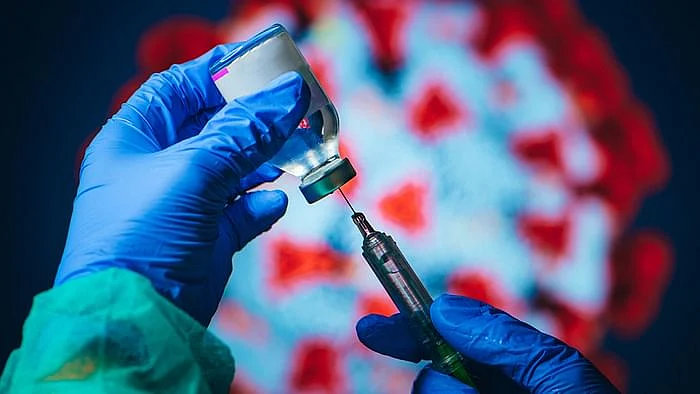Vaccine news has been the light at the end of the tunnel for most of us. But there are still a few skeptics who believe in the science of vaccines but aren't quite convinced about a COVID vaccine.
Can I trust the safety of a COVID vaccine? Does everyone really need to take it? Can I wait for 6 months, and see its effects on other people before I decide on vaccination?
FIT asked virologist Dr Shahid Jameel to address some common questions about COVID vaccine to help quell anxieties. Dr Jameel is the Director of Trivedi School of Biosciences at Ashoka University.
The answers are based on his response.
Read on.
The vaccine has been developed in record time. How was this possible?
This is the first time ever a global pandemic will end due to vaccines. They have been developed very fast, but that is because of a few reasons. Number one, usually vaccines are developed sequentially. Which means once each phase is over, the next phase begins. For the COVID vaccine, many Phase 1 trials began while animal testing was going on, and many Phase 1 and Phase 2 trials happened simultaneously to speed things up.
Does this mean safety checks were ignored?
No, but the regulatory approval between phases that used to take months now was happening in days. The safety and efficacy of a vaccine will depend on the human immune system, and that remains the same. Only processes have been sped up.
‘Yes, the anxiety is real because we have never experienced this before but I can say no safety corners have been cut. You can’t lose faith in vaccines, they are the most economical public health measure.”Dr Shahid Jameel
Should I wait for a few months before I get the vaccine?
Sure, it’s a personal choice. You have to determine for yourself if the cost of getting infected by COVID is lower than the potential cost of getting the vaccine.
If you are in two minds because of the safety issue, that is a fear that is misplaced. The question is: Should you wait for two years as you are prone to COVID today? For example, if you go out, go to work, go to restaurants – you are always prone to catch the infection as we are in the middle of a pandemic.Dr Shahid Jameel
What if 60 percent of the population gets COVID and give me herd immunity? That won’t be so bad, would it?
What’s the guarantee that you won’t get infected even then? Sweden tried this, they wanted to achieve herd immunity as a country but now their hospitals and ICUs are full. This virus is bad because you may survive the virus but the after-effects it leaves on your system is not something we fully understand yet.
The risk from the vaccine is much less than the risk from COVID.
I go out often and I am sure I have had COVID-19 in the past. Should I really get a vaccine?
“There is merit to that argument because a vaccine will not give you better immunity than natural infection. My advice is to get an antibody test and if you are antibody positive don’t take the vaccine,” Dr Jameel said.
There have been so many drugs and treatments – like HCQ or plasma therapy – that have claimed to help but have been recalled later. So how do I trust this vaccine?
There is a big difference between the drugs being recalled and the vaccines. None of the drugs – be it Hydroxychloroquine or Remdesivir – were tested in a double-blind manner. It was neither tested against a control so we never knew about their efficacy. And when control trials took place, they fell apart.
For vaccines, they have all been tested and are being tested in a double-blind, in a controlled manner, so we can be aware of their efficacy and safety before they are released, he added.
(This was first published on FIT and has been republished with permission.)
